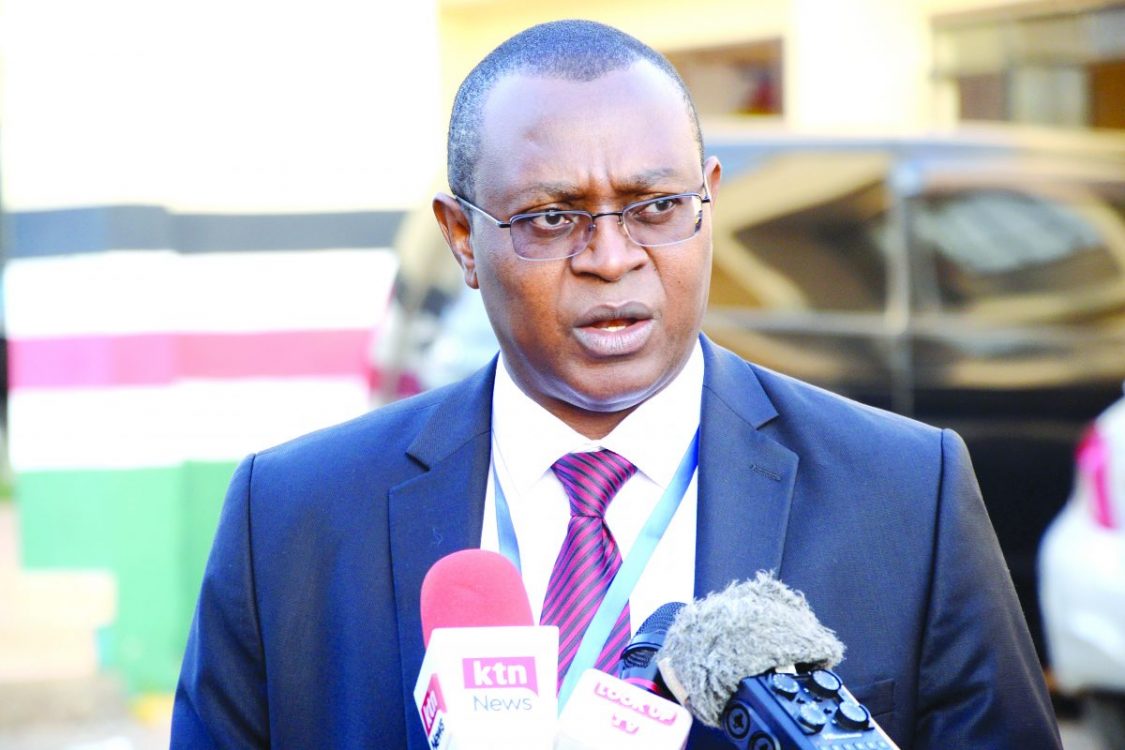Knec to assess coding syllabus before introduction in schools
By Irene.Githinji, October 7, 2022The Kenya National Examination Council (KNEC) has said it will establish mechanisms to assess coding syllabus for primary and secondary schools once they officially receive them from the curriculum developer.
KNEC Chief Executive Officer (CEO), David Njengere yesterday said that the examining body has an obligation of assessing all curricula developed by the Kenya Institute of Curriculum Development (KICD) and coding has already been approved.
He said the bulk of the work is with KICD to ensure the curriculum is submitted to KNEC so that it can prepare for assessment.
“As soon as we receive it from KICD, we will put a mechanism in place to ensure the curriculum is assessed and this is going to be done in a way that it will not disadvantage any child,” Njengere said.
He made the remarks during a symposium in Nairobi, organized by the Kenya Association of International Schools (KAIS) and Kodris Africa, which has developed the platform for coding syllabus.
“We all know that in 2017, the Government supplied digital devices to all public primary schools and we have been using those devices to facilitate instructions in schools. So, if the coding curriculum comes to use, then those children who will be having those devices will use the same for the assessment,” Njengere explained.
During the symposium, some 120 schools participated, which underscored the urgent need to teach coding right from an early age, saying it is one of the pillars in engineering and computer science and a fundamental building block for information technology.
Some of the schools present were Rusinga, Oshwal Academy, Braeside, Brookhouse, Peponi House Preparatory, Premier Academy, Banda, Riara group of schools, Braeburn, Roseline Academy, Machakos School and Aga Khan among others.
Certain levels
Kodris Africa CEO, Mugumo Munene said they are introducing curriculum materials to international schools so that they can consider it as part of what they deliver in schools when teaching coding.
“The curriculum we have developed is not for one segment of schools or the other, it is deployable to an international school environment, private or even a public school,” Munene explained.
On certification, Munene said they are looking at two perspectives where an exam body like KNEC and also working with the industry to see whether they can give certification of certain levels to those who graduate from high school.
“The question of certification is important to any school or parent in terms of if we study, what happens next. We are looking at it from two perspectives, one of them is certification by an exam body like KNEC and we are delighted by its remarks that they are looking forward to assessing this material and establishing a system through which this can be examined,” Munene explained.
It is projected that by 2030, 50 – 55 per cent of all jobs in Kenya will require some level of digital skills with the demand being primarily driven by enterprises adopting digital technologies.
KAIS Head of Secretariat, Jane Mwangi said they felt the need to hold a conversation about coding because KICD has already approved the content through Kodris Africa.
Industrial revolution
“We are gathered to discuss digital skills that can be offered to primary and secondary schools in Kenya. International Schools have been offering computing and coding for years and we felt it was time we spoke as a country because digital skills are very important, it is the way we are all moving. We have invited industry to tell us how we can prepare students for the world of work,” she said.
They said that the industrial revolution right now is towards digital skills so teaching coding in primary and secondary schools is a step in the right direction.
